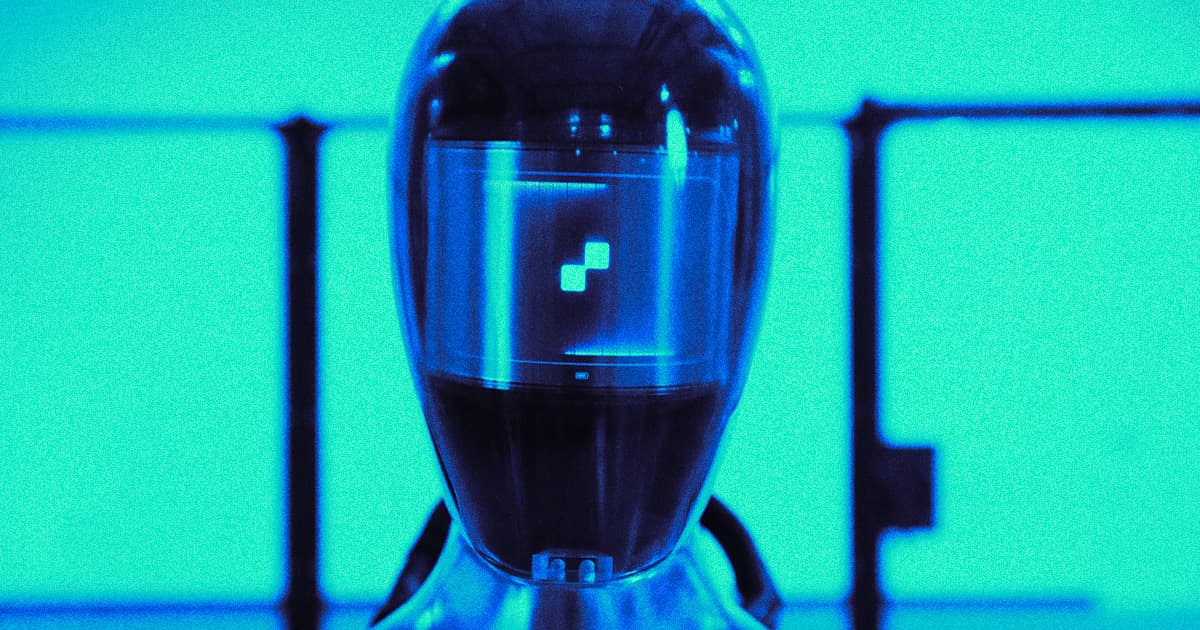Automatons, roll out!
Figure01
Remember before generative AI began threatening white-collar jobs, when worries that humanoid robots would replace physical human labor abounded? Well, our corporate overlords are here to remind us that we still need to worry about those imagined dextrous factory bots, too.
As Gizmodo reports, automobile manufacturer BMW announced last week that it's signed an unprecedented deal with the California-based robotics firm Figure to bring general-purpose humanoid robots into its Spartanburg, South Carolina factory.
Per Giz, the company is specifically set to deploy its namesake "Figure01" model, a bipedal robot that stands at 5'6" and 130 pounds.
In a press release, BMW argued that the bots will be used to automate "difficult, unsafe, or tedious tasks throughout the manufacturing process." This, the release argues, will free workers to "focus on skills and processes that cannot be automated." But as Giz points out, that's an incredibly vague explanation of what these robots will be doing — other than the general taking of tasks away from human workers, of course.
Today we're unveiling our Figure 01 robot.
Watch as we demonstrate dynamic bipedal walking - a milestone the team was able to hit within 12 months of company inception.
Here are the details: pic.twitter.com/tSNVLioXpC
— Figure (@Figure_robot) October 17, 2023
Consulting Fee
But that said, not even BMW appears to know what these waddling, Keurig-using robots will be doing. According to the press release, the "first phase" of the agreement between the companies will involve Figure identifying "initial use cases to apply the Figure robots in automotive production."
Manufacturers across industries, including automotive, have utilized robotics for decades. But these innovations have overwhelmingly been confined to single-purpose robotics, or machines used to automate a very specific task. A truly functional general-purpose bot, or a bot that could competently execute a variety of tasks sans the fear of workplace death and injury or — the horror! — things like lunch breaks and health insurance, has yet to be realized in a major manufacturing environment.
United Automated Workers
In a statement, Figure founder and CEO Brett Adcock proclaimed that the "potential of general-purpose robotics is completely untapped" and promised his machines "will enable companies to increase productivity, reduce costs, and create a safer and more consistent environment."
Those purported benefits remain to be seen. But if BMW's integration effort ultimately proves fruitful, we can probably expect other major manufacturers to follow suit, especially considering a recent Wall Street Journal report revealing that automobile executives in Detroit are extra bullish on automation these days following 2023's United Auto Workers (UAW) union wins.
BMW wasn't mentioned in that report, as its American workers aren't protected under the UAW. But we'd remiss not to note that back in November, following the UAW's big victories, thousands of autoworkers at non-union companies including Tesla, Toyota, and — yes — BMW signed their UAW cards in hopes of future unionization.
More on workplace automation: Oops! Replacing Workers With AI Is Actually More Expensive, MIT Finds
Share This Article
